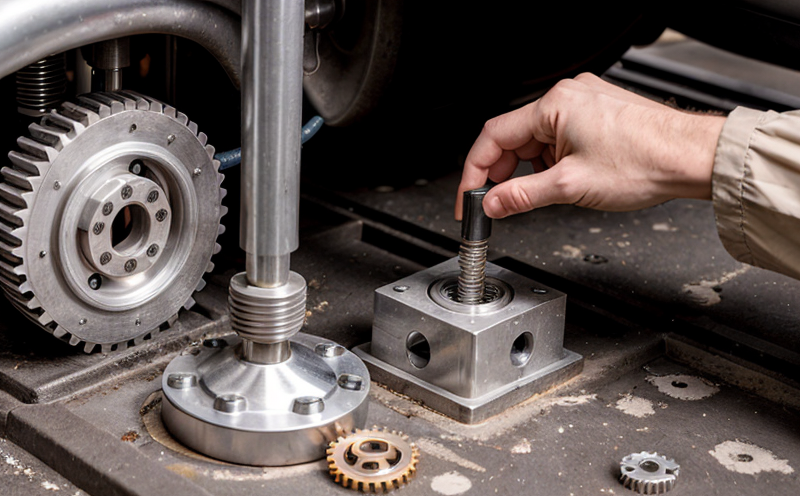ISO 14126 Compression Testing of Composites
The ISO 14126 standard is specifically designed to provide a method for determining the compressive properties of composite materials used in additive manufacturing (AM) and 3D printing processes. This test assesses how these materials deform or fail under compression, which is critical for ensuring the structural integrity and performance of parts manufactured through AM techniques.
Composite materials are increasingly utilized in the aerospace, automotive, and medical industries due to their light weight and high strength-to-weight ratio. However, the unique nature of composite structures can lead to unpredictable mechanical behavior under different loading conditions. ISO 14126 addresses these challenges by offering standardized procedures that help manufacturers verify the reliability and quality of their products.
The test involves subjecting a specimen cut from the composite material to gradually increasing compressive forces until it either deforms significantly or fails completely. Specimens are typically prismatic shapes, which allow for consistent measurement and comparison across multiple samples. The compression testing machine used must be capable of precise load application and displacement control.
One key aspect of this test is the preparation of specimens. Proper sample preparation ensures accurate results, as improper cutting or orientation can lead to misleading data. Specimens should be cut according to specified dimensions and tolerances outlined in the ISO 14126 standard. The surfaces must also be free from contaminants that could affect the outcome.
The test setup includes a compression testing machine equipped with an appropriate fixture for holding the specimen securely during loading. Load cells measure the applied force, while extensometers monitor any changes in length or shape of the sample. Data acquisition systems capture these measurements at regular intervals throughout the test to generate stress-strain curves.
The results from ISO 14126 compression tests are used by engineers and quality assurance personnel to make informed decisions about material selection, process optimization, and product design. By understanding how composite materials behave under compressive loads, manufacturers can improve their products' durability and performance. For instance, aerospace companies might use this information to enhance the safety of aircraft components, while automotive firms could apply it to develop lighter yet stronger car parts.
Moreover, compliance with international standards like ISO 14126 is essential for businesses operating globally. It demonstrates commitment to quality and helps build trust among customers who rely on consistent product performance across various applications. Additionally, successful completion of such tests can accelerate market entry by meeting regulatory requirements set forth by bodies such as the Federal Aviation Administration (FAA) or European Union Aviation Safety Agency (EASA).
Benefits
- Ensures compliance with international standards for composite materials used in AM processes.
- Promotes consistent product quality through rigorous testing procedures.
- Aids in optimizing manufacturing processes to improve part performance and longevity.
- Facilitates safer design of critical components by providing reliable mechanical property data.
- Simplifies regulatory compliance for export markets requiring specific certification.
- Enhances brand reputation through demonstration of commitment to quality assurance practices.
Eurolab Advantages
At Eurolab, we pride ourselves on offering comprehensive and accurate testing services tailored specifically for the additive manufacturing sector. Our team of experts ensures that every test adheres strictly to international standards such as ISO 14126, providing clients with confidence in their results.
We have state-of-the-art equipment capable of performing precise compression tests on composite materials used in AM applications. Our experienced technicians are well-versed in handling complex specimens and interpreting the data accurately. This allows us to deliver reliable and actionable insights that can be directly applied to improve product designs and manufacturing methods.
Our commitment to excellence extends beyond just meeting regulatory requirements; we also offer customized testing solutions based on client needs. Whether you require routine quality checks or need assistance in validating new materials, Eurolab has the expertise and resources necessary to meet those demands effectively.
Why Choose This Test
- Precise evaluation of compressive behavior under controlled conditions.
- Comprehensive understanding of material performance in real-world scenarios.
- Enhanced accuracy through standardized testing protocols.
- Achievement of regulatory compliance for international markets.
- Supports continuous improvement initiatives within manufacturing processes.
- Promotes safer designs by identifying potential weaknesses early on.





